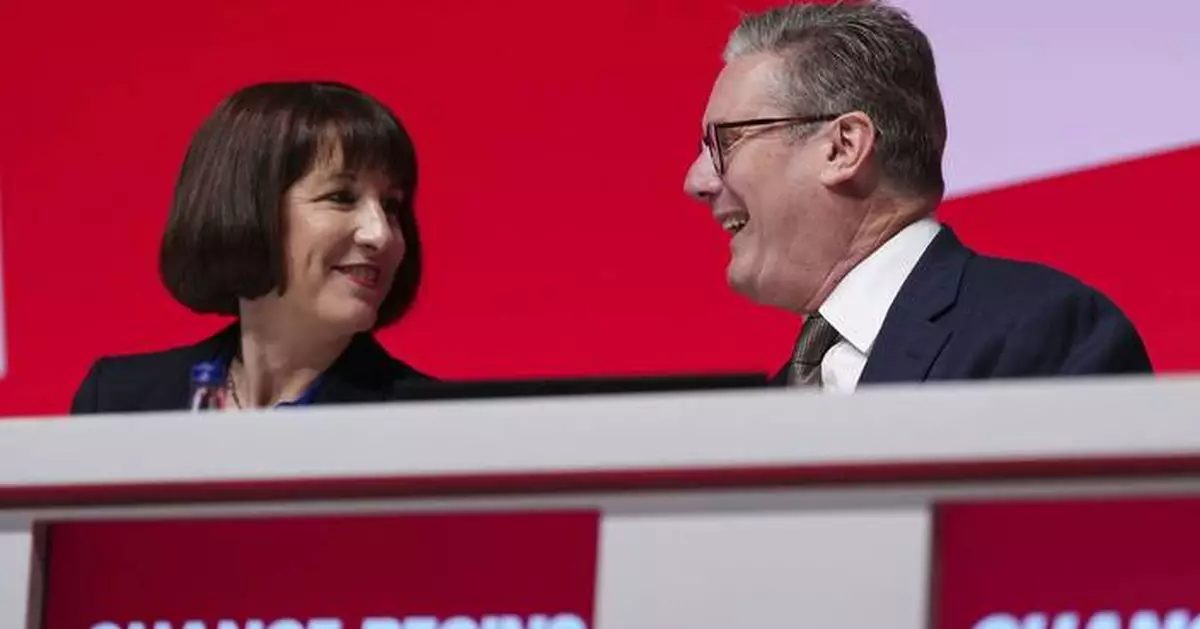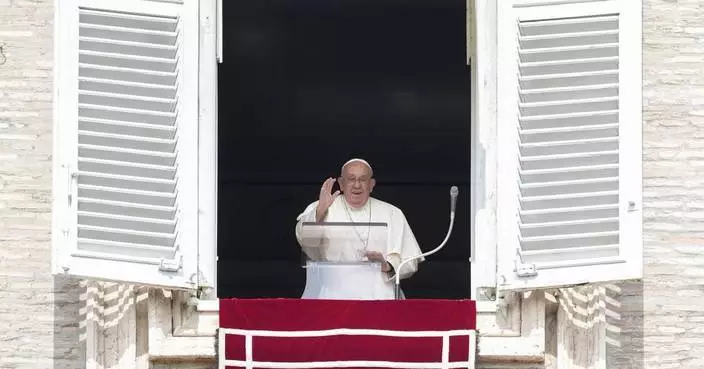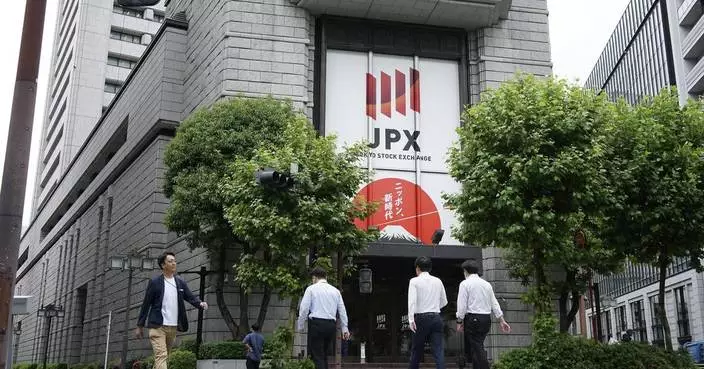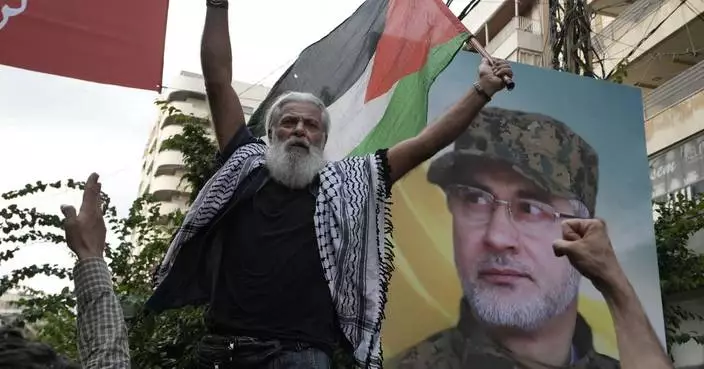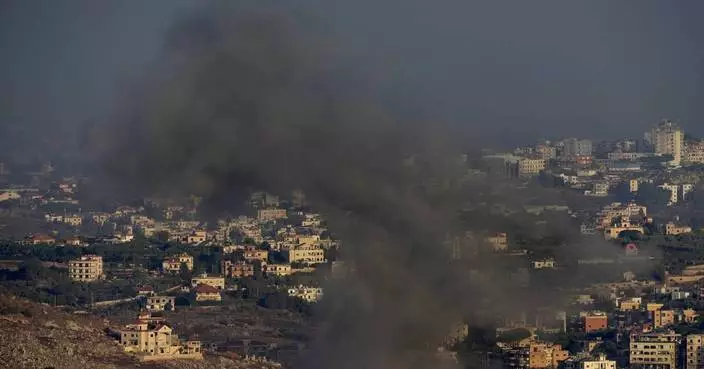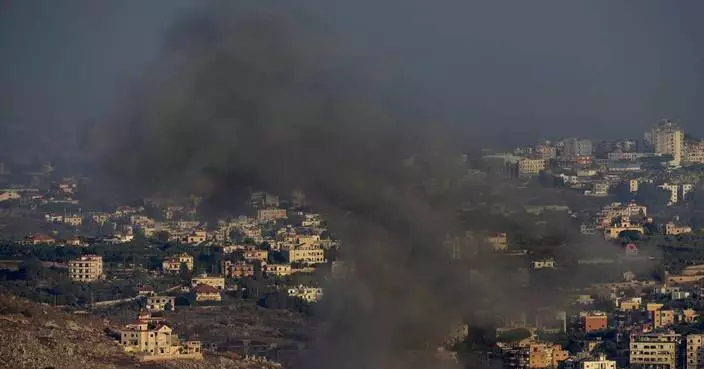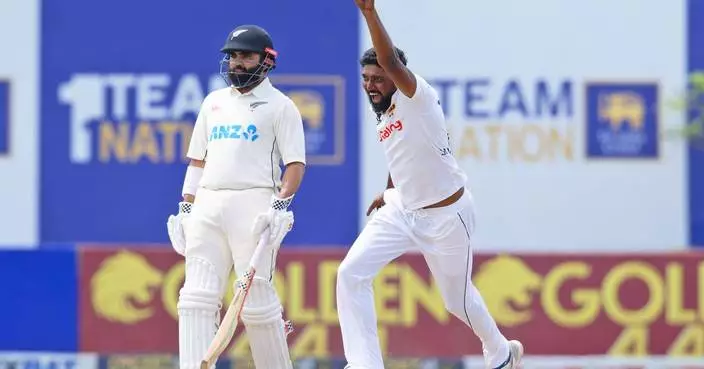LIVERPOOL, England (AP) — British Treasury chief Rachel Reeves will pledge Monday not to return to an era of public spending cuts despite the dire state of the U.K.’s national finances.
Reeves plans to stress optimism in a speech to the Labour Party’s annual conference, aiming to reassure party members, jittery despite a recent landslide election victory, that her first budget next month won’t be all doom and gloom.
The party said Reeves, the U.K.’s first female finance minister, will stress that “my optimism for Britain burns as bright as it ever has done.”
The center-left party is gathering in the northwest England port city of Liverpool three months after winning power in Britain’s July 4 election. While Labour's return to office after 14 years in opposition has many delegates buzzing, some are anxious about the government’s faltering start and downbeat economic messaging.
Prime Minister Keir Starmer won the election on a promise to banish years of turmoil and scandal under the Conservatives, get Britain’s sluggish economy growing and restore frayed public services such as the state-funded National Health Service.
Since then, he has struck a gloomy note, saying there is a 22 billion pound ($29 billion) “black hole” in the public finances left by the Conservative government, and warning that “things will get worse” before they get better. That has many party members worried that tax increases and spending cuts loom in the Oct. 30 budget.
Reeves plans to say “there will be no return to austerity” and stress that the government will invest to reverse declines in “growth, productivity and family incomes,” according to advance extracts released by the party.
“Conservative austerity was a destructive choice for our public services -– and for investment and growth too,” Reeves is to say about spending cuts imposed by previous governments after the 2008 global financial crisis. “We must deal with the Tory legacy and that means tough decisions. But we won’t let that dim our ambition for Britain."
Reeves will lay out how the government hopes to fill some of the fiscal black hole without raising income tax, sales tax or corporation tax, all of which she has ruled out. Measures include a crackdown on tax avoiders and a drive to claw back money defrauded from contracts issued during the COVID-19 pandemic.
Contentiously, the government has also announced it will save money by stripping millions of retirees of a payment intended to help heat their homes in winter.
Trade unions that are among Labour’s funders and allies hope to secure a vote among conference delegates opposing the decision to remove the winter fuel allowance, worth between 200 and 300 pounds ($262 and $393), from all but the poorest pensioners. The result would not be binding but would add to pressure on the government over the unpopular new policy.
The party’s mood has been further dampened by a tempest over Starmer’s acceptance of freebies at a time when millions of people are struggling with the cost of living.
Starmer insists he followed the rules when he took thousands of pounds (dollars) worth of clothes and designer eyeglasses from Waheed Alli, a media entrepreneur and Labour donor. But after days of negative headlines, the party says Starmer won’t accept any more free outfits. Neither will Reeves or Deputy Prime Minister Angela Rayner, both of whom also received donations for clothing.
Starmer will try to change the subject and rally the Labour troops in his speech Tuesday at the autumn conference, a blend of pep rally, policy forum and boozy bash that plays a key role in maintaining morale among party activists.
He’ll point to the government’s early actions, including ending a wave of public-sector strikes, and plans to take public ownership of the railways, set up a state-owned green energy firm, impose tougher rules on water companies that dump sewage and strengthen rights for workers and renters.
Last year’s Labour conference fizzed with optimism, as a party that had lost four straight elections sensed power was within its grasp. If the mood this year is more muted, it will likely be more upbeat than next week’s gathering by the Conservatives, who suffered their worst-ever election defeat in July.
The Tory convention in the central England city of Birmingham will be dominated by the contest to replace former Prime Minister Rishi Sunak as party leader and internal arguments about how to chart a way back to power.
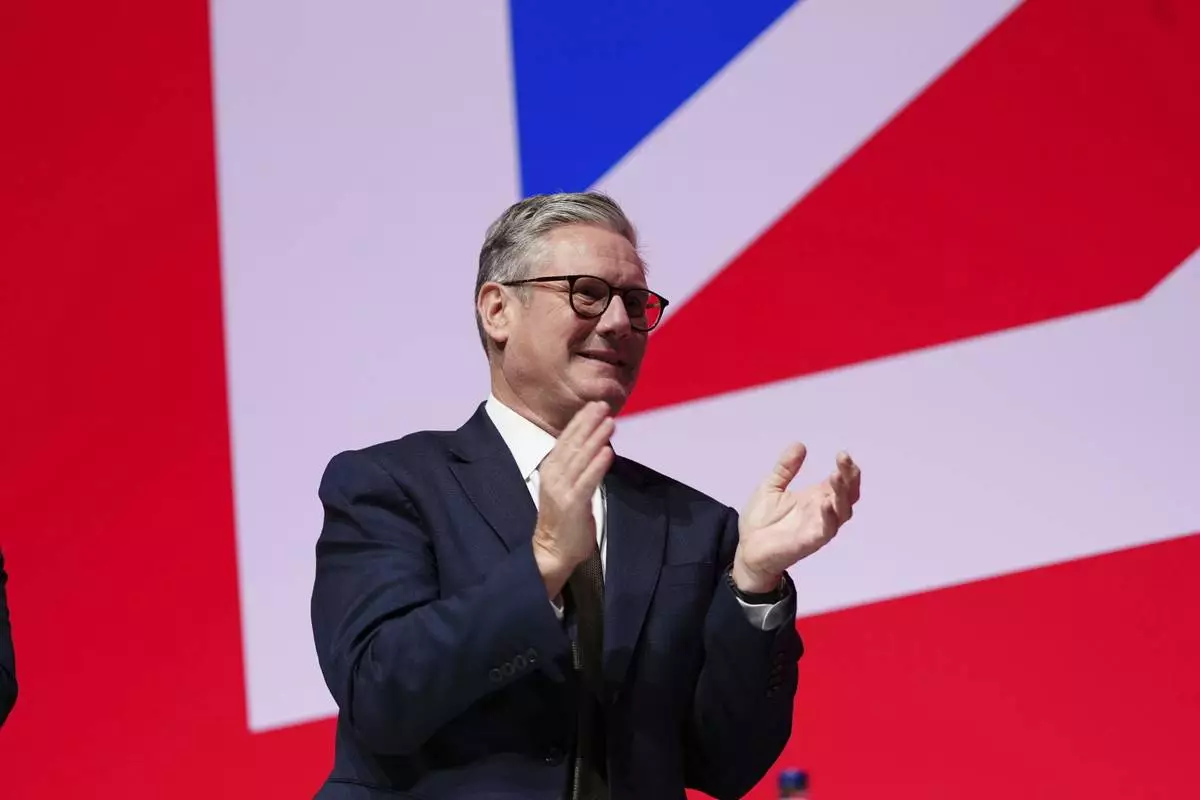
Britain's Prime Minister Keir Starmer attends the Labour Party Conference in Liverpool, England, Sunday Sept. 22, 2024. (Peter Byrne/PA via AP)
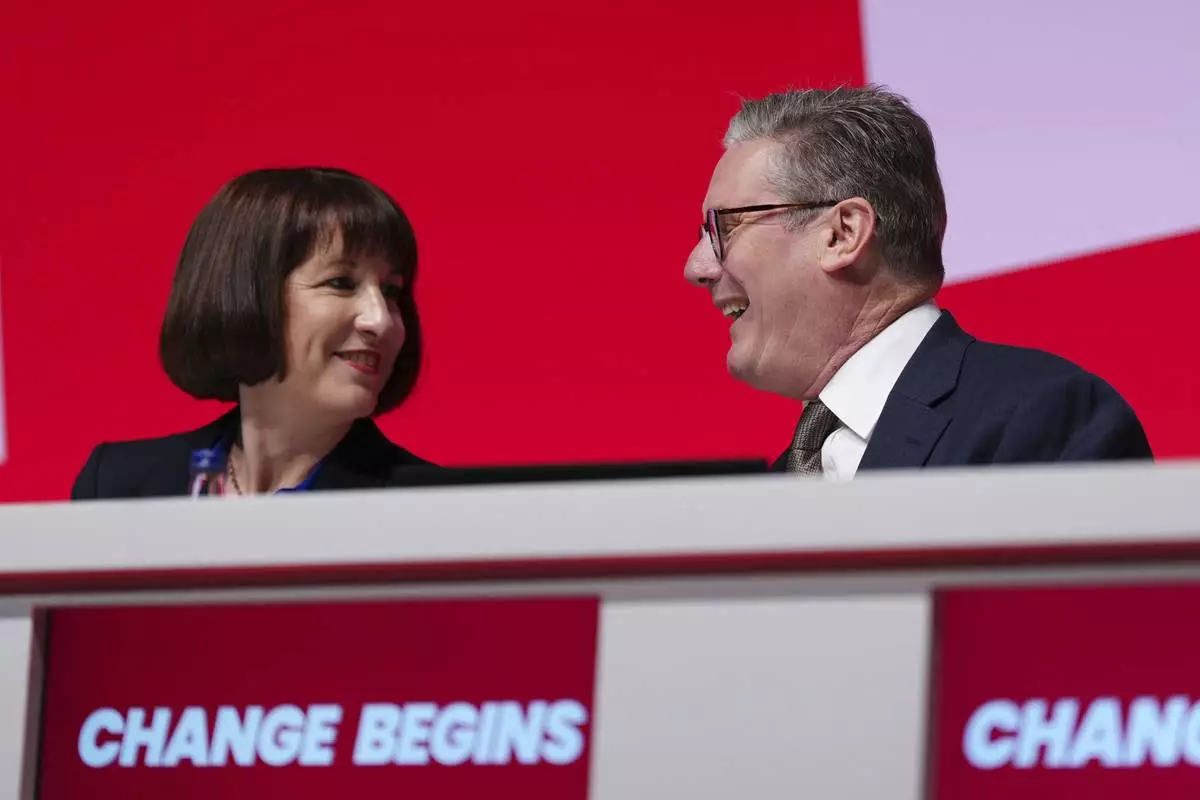
Britain's Prime Minister Keir Starmer and Chancellor of the Exchequer Rachel Reeves attend the Labour Party Conference in Liverpool, England, Sunday Sept. 22, 2024. (Peter Byrne/PA via AP)
JERUSALEM (AP) — The Israeli military on Monday called on residents of southern Lebanon to immediately evacuate homes and other buildings where Hezbollah stores weapons and said it was carrying out “extensive strikes” against the militant group.
It was the first warning of its kind in nearly a year of steadily escalating conflict and came after a particularly heavy exchange of fire on Sunday. Hezbollah launched around 150 rockets, missiles and drones into northern Israel in retaliation for strikes that killed a top commander and dozens of fighters.
The escalating strikes and counterstrikes have raised fears of an all-out war, even as Israel is still battling the Palestinian Hamas in Gaza and trying to return scores of hostages taken in Hamas' Oct. 7 attack. Hezbollah has vowed to continue its strikes in solidarity with the Palestinians and Hamas, a fellow Iran-backed militant group, while Israel says it is committed to returning calm to the border.
An Israeli military official said Israel is focused on aerial operations and has no immediate plans for a ground operation. The official, speaking on condition of anonymity in keeping with regulations, said the strikes are aimed at curbing Hezbollah's ability to launch more strikes into Israel.
Lebanese media reported that residents received text messages urging them to move away from any building where Hezbollah stores arms until further notice.
“If you are in a building housing weapons for Hezbollah, move away from the village until further notice,” the Arabic message reads, according to Lebanese media.
It was not immediately clear how many people would be affected by the Israeli orders. Communities on both sides of the border have largely emptied out because of the near-daily exchanges of fire.
Israel has accused Hezbollah of transforming entire communities in the south into militant bases, with hidden rocket launchers and other infrastructure. That could lead it to wage an especially heavy bombing campaign, even if no ground forces move in.
The military said it had targeted more than 150 militant sites early Monday. Residents of different villages in southern Lebanon posted photos on social media of airstrikes and large plumes of smoke. The state-run National News Agency also reported airstrikes on different areas.
An Israeli airstrike on a Beirut suburb on Friday killed a top Hezbollah military commander and more than a dozen fighters, as well as dozens of civilians, including women and children.
Last week, thousands of communications devices, used mainly by Hezbollah members, exploded in different parts of Lebanon, killing 39 people and wounding nearly 3,000. Lebanon blamed Israel for the attacks, but Israel did not confirm or deny its responsibility.
Hezbollah began firing into Israel a day after the Oct. 7 attack in what it said was an attempt to pin down Israeli forces to help Palestinian fighters in Gaza. Israel has retaliated with airstrikes, and the conflict has steadily intensified over the past year.
The fighting has killed hundreds of people in Lebanon, dozens in Israel and displaced tens of thousands on both sides of the border. It has also sparked brush fires that have destroyed agriculture and scarred the landscape.
Israel has vowed to push Hezbollah back from the border so its citizens can return to their homes, saying it prefers to do so diplomatically but is willing to use force. Hezbollah has said it will keep up its attacks until there is a cease-fire in Gaza, but that appears increasingly elusive as the war nears its anniversary.
Hamas-led militants stormed into southern Israel on Oct. 7, killing some 1,200 people, mostly civilians, and abducting around 250. Some 100 captives are still held in Gaza, a third of whom are believed to be dead, after most of the rest were released during a weeklong cease-fire in November.
Israel's offensive has killed over 41,000 Palestinians, according to Gaza's Health Ministry, which does not differentiate between civilians and fighters in its count. It says women and children make up a little over half of those killed. Israel says it has killed over 17,000 militants, without providing evidence.
Mroue reported from Beirut.
Follow AP’s war coverage at https://apnews.com/hub/israel-hamas-war
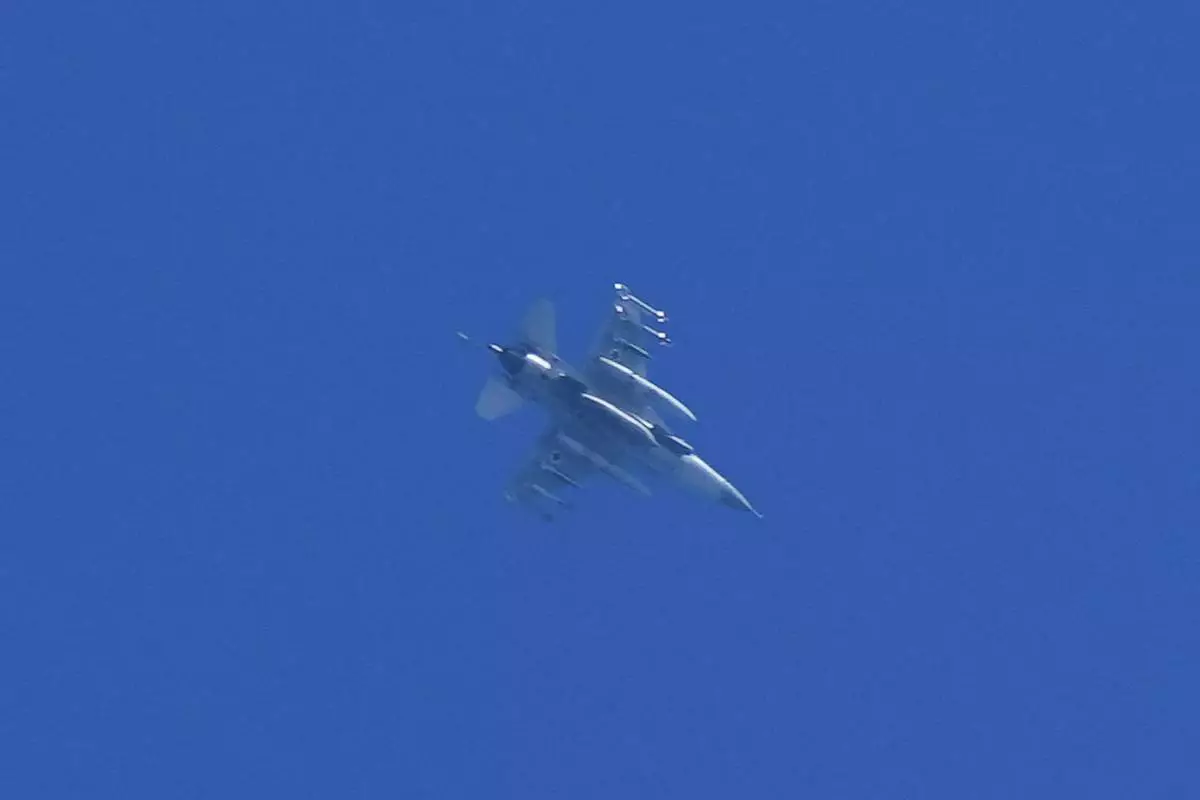
An armed Israeli fighter jet is seen from Haifa, northern Israel, on Monday, Sept. 23, 2024. (AP Photo/Baz Ratner)
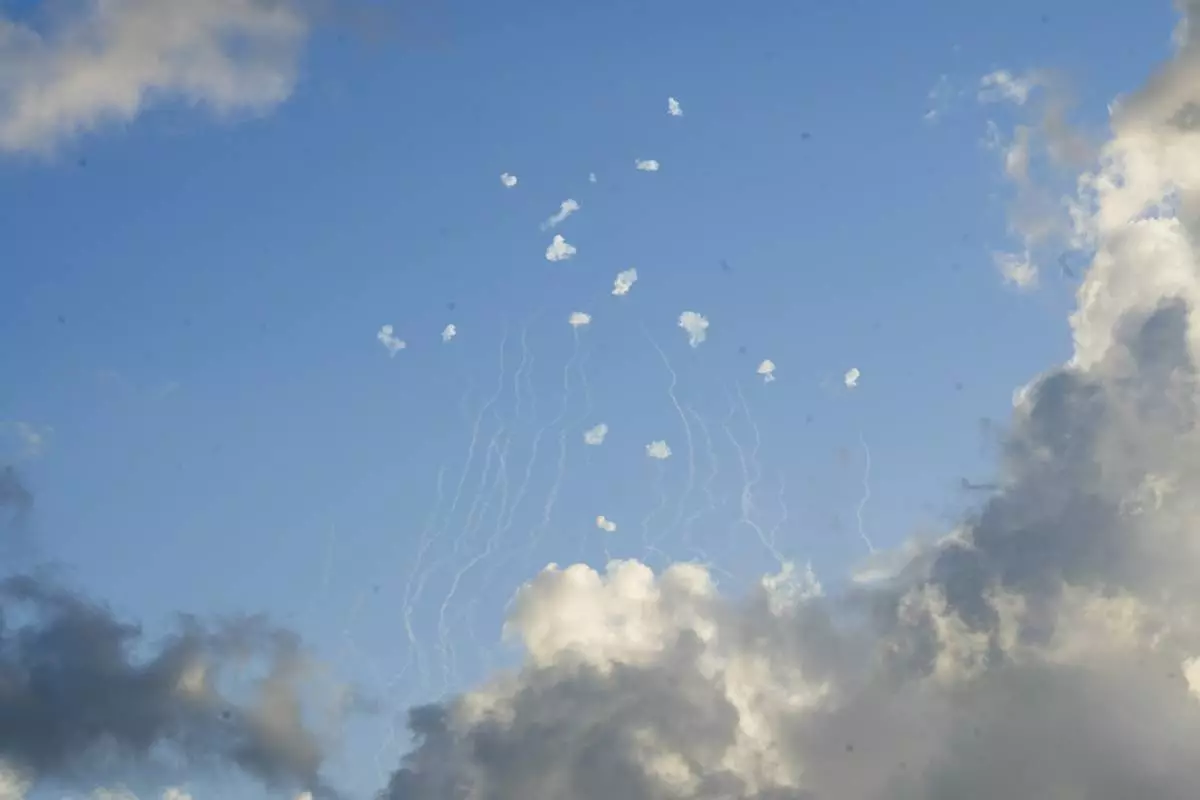
Israeli Iron Dome air defense system fires to intercept rockets that were launched from Lebanon, in northern Israel, Sunday, Sept. 22, 2024. (AP Photo/Baz Ratner)
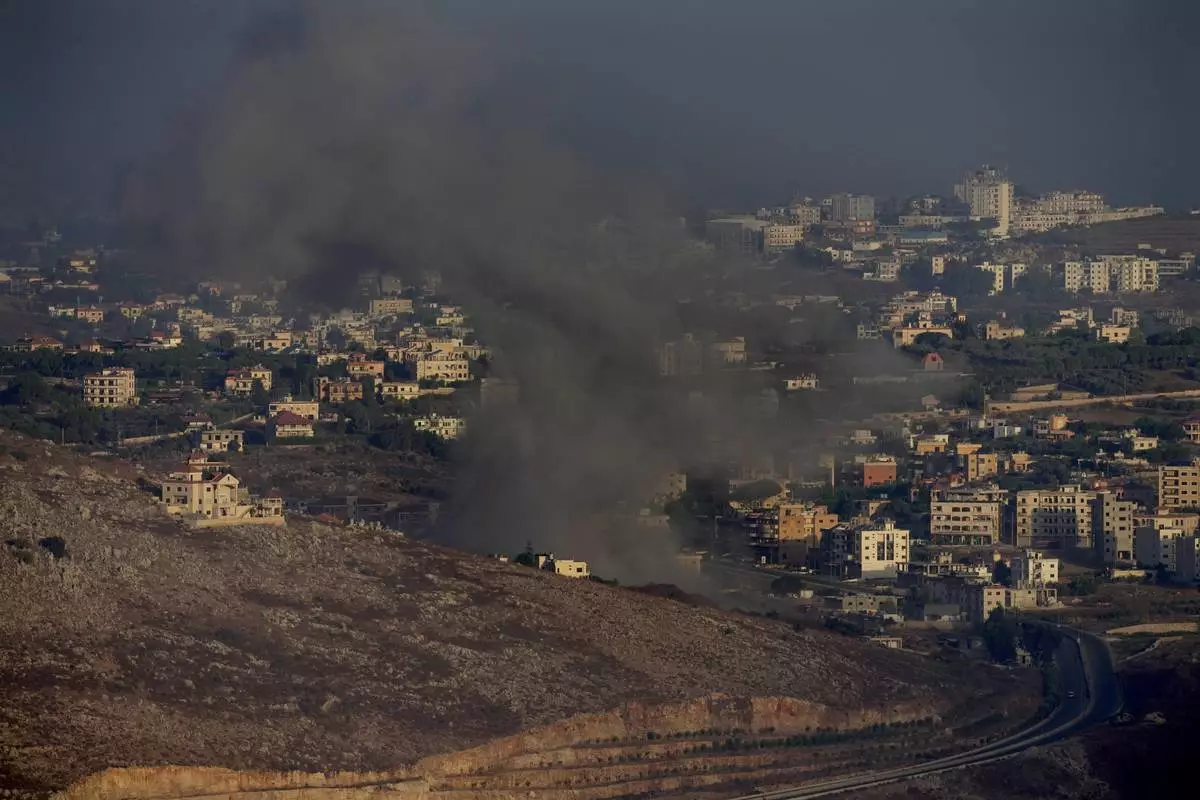
Smoke rises from an Israeli airstrike on Kfar Rouman village, as seen from Marjayoun town, south Lebanon, Monday, Sept. 23, 2024. (AP Photo/Hussein Malla)
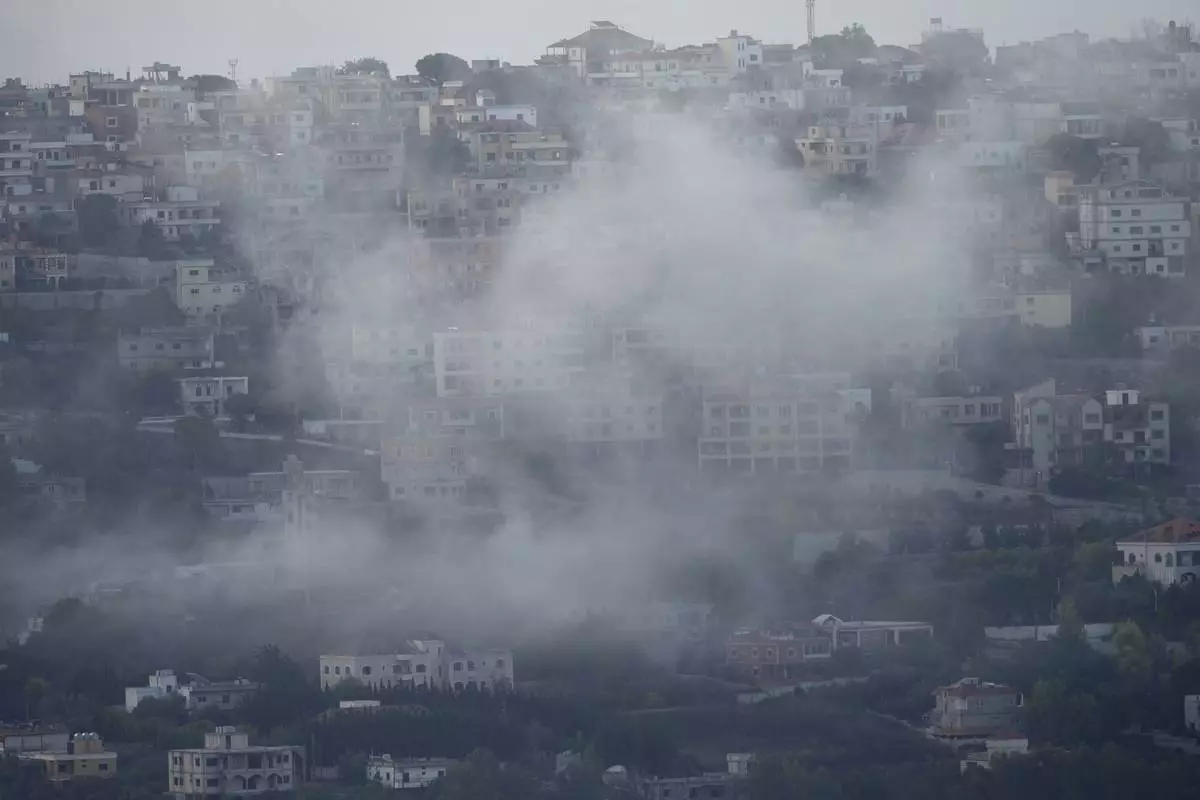
Smoke rises from an Israeli airstrike on Khiam village, as seen from Marjayoun town, south Lebanon, Monday, Sept. 23, 2024. (AP Photo/Hussein Malla)
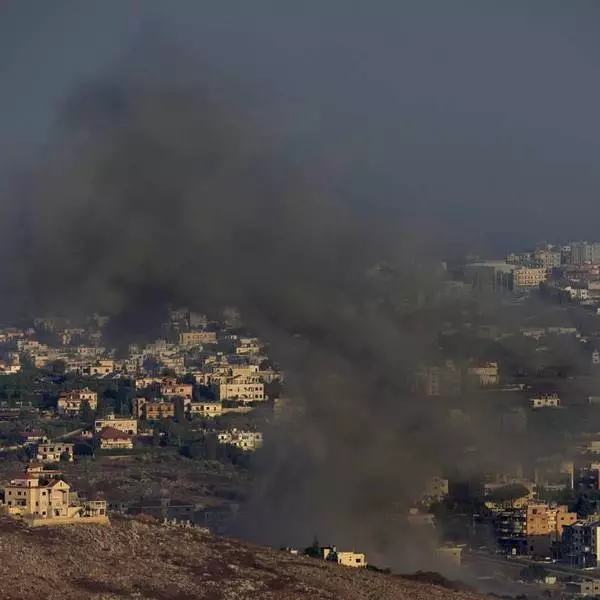
Israel calls on Lebanese to leave homes where Hezbollah stores arms as warplanes launch new strikes
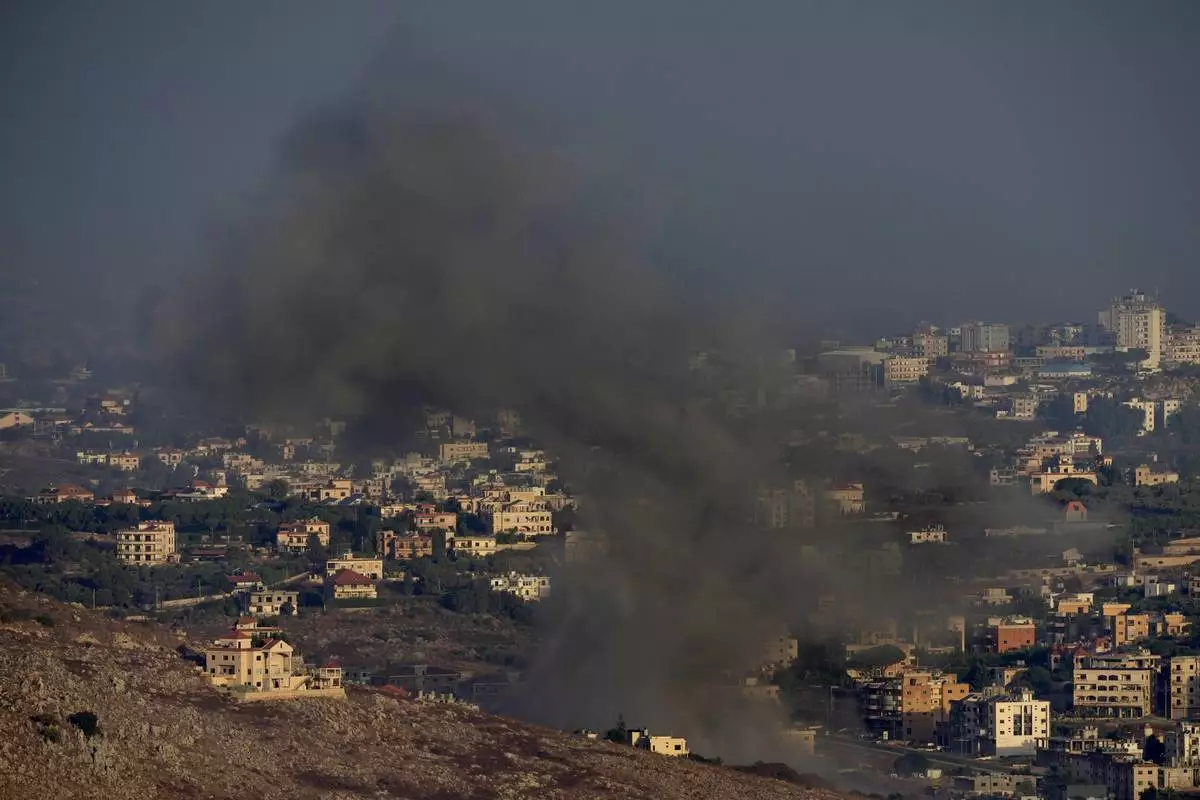
Smoke rises from an Israeli airstrike on Kfar Rouman village, as seen from Marjayoun town, south Lebanon, Monday, Sept. 23, 2024. (AP Photo/Hussein Malla)
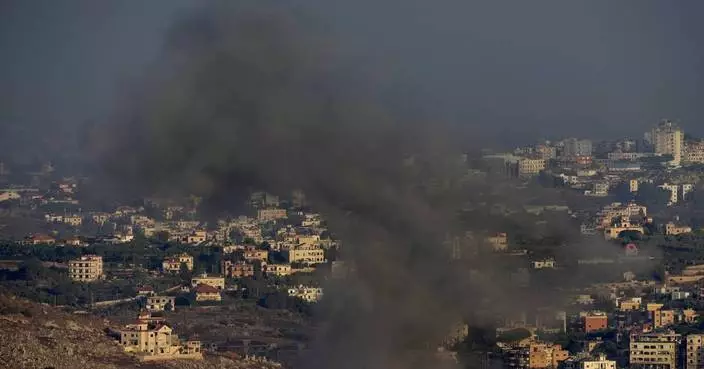
Israel calls on Lebanese to leave homes where Hezbollah stores arms as warplanes launch new strikes




